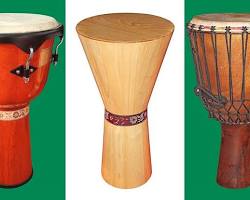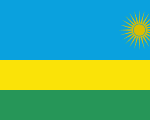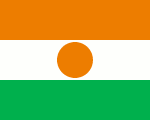Nigeria is a country in West Africa with a population of about 211 million people, making it the most populous African nation and the seventh most populous country in the world. Nigeria is also the largest economy in Africa and the 26th largest in the world, with a nominal GDP of $442 billion in 2020. Nigeria is rich in natural resources, such as oil, gas, coal, iron ore, gold, limestone, and agricultural products, such as cocoa, cassava, yams, rice, and maize. Nigeria is also home to a diverse and vibrant culture, with over 250 ethnic groups and 500 languages spoken. Nigeria has a federal system of government, with 36 states and a federal capital territory. The current president is Muhammadu Buhari, who was re-elected for a second term in 2019.
Nigeria has a long and complex history, dating back to ancient civilizations such as the Nok, Igbo-Ukwu, Ife, Benin, and Hausa kingdoms. Nigeria was colonized by Britain in the 19th century and gained its independence in 1960. Since then, Nigeria has experienced several periods of political instability, military coups, civil wars, ethnic conflicts, and religious violence. Nigeria has also faced many challenges such as corruption, poverty, inequality, unemployment, insecurity, terrorism, and environmental degradation. Despite these difficulties, Nigeria has also made significant progress in areas such as democracy, human rights, education, health, infrastructure, and regional integration. Nigeria is a founding member of the African Union and the Economic Community of West African States (ECOWAS), and plays an important role in regional and international affairs.
Nigeria is a country with immense potential and opportunities for development and growth. Nigeria has a young and dynamic population, a large domestic market, a strategic location, and abundant natural resources. Nigeria also has a strong entrepreneurial spirit and a vibrant creative industry, especially in music, film, literature, and fashion. Nigeria is a country that is constantly evolving and adapting to changing circumstances and challenges. Nigeria is a country that is proud of its heritage and culture, but also open to new ideas and influences. Nigeria is a country that is diverse and complex, but also united and resilient. Nigeria is a country that is not perfect, but also not hopeless. Nigeria is a country that is worth knowing more about.
Music, Dance, Food, Dress
Music: Nigeria has a diverse and vibrant music scene, with many different genres and styles. Some of the most popular include:
- Highlife: A traditional genre of music that originated in the south of Nigeria. It is characterized by its upbeat tempo and catchy melodies.
- Juju: A genre of music that originated in the southwest of Nigeria. It is characterized by its use of traditional Yoruba instruments and its often political lyrics.
- Fuji: A genre of music that originated in the north of Nigeria. It is characterized by its use of electric guitars and its often social commentary.
- Afrobeat: A genre of music that originated in the 1970s with the musician Fela Kuti. It is characterized by its fusion of traditional African music with jazz, funk, and soul.


Dancing: Dancing is an important part of Nigerian culture, and there are many different dances that are performed throughout the country. Some of the most popular include:
- Egungun: A traditional dance that is performed by the Yoruba people. It is a masquerade dance that is used to celebrate the spirits of the ancestors.
- Durbar: A military dance that is performed by the Hausa people. It is a colorful and energetic dance that is performed to celebrate special occasions.
- Akwete: A dance that is performed by the Igbo people. It is a graceful and elegant dance that is performed to celebrate weddings and other special occasions.

Egungun traditional dance in Nigeria

Durbar military dance in Nigeria

Akwete dance in Nigeria
Food: Nigerian food is as diverse as its culture, and there are many different dishes to choose from. Some of the most popular include:
- Jollof rice: A rice dish that is cooked with tomatoes, onions, and spices. It is a national dish of Nigeria and is often served with chicken or beef.
- Efo riro: A vegetable soup that is made with spinach, okra, and other vegetables. It is a popular dish in the southwest of Nigeria.
- Suya: A grilled skewered meat that is seasoned with spices. It is a popular street food in Nigeria.
- Pounded yam: A dish made from pounded yam, a type of starchy tuber. It is often served with stew or soup.

Jollof rice in Nigeria

Efo riro vegetable soup in Nigeria

Suya grilled skewered meat in Nigeria
Dressing: Nigerian dressing is also diverse, and there are many different styles to choose from. Some of the most popular include:
- The agbada: A long flowing robe that is worn by men. It is often made from silk or cotton and is decorated with embroidery or beads.
- The buba and wrapper: A loose-fitting shirt and wrapper that is worn by both men and women. The buba is a long-sleeved shirt that is often made from cotton or silk. The wrapper is a long piece of cloth that is wrapped around the waist.
- The Iro and buba: A traditional dress that is worn by women in the southwest of Nigeria. The iro is a long wraparound skirt that is often made from adire cloth, a tie-dye fabric. The buba is a long-sleeved shirt that is often made from lace or silk.

Agbada traditional dress in Nigeria

Buba and wrapper traditional dress in Nigeria
Getting Marriage in Nigeria
Getting married in Nigeria can be a complex process, as there are different laws and regulations depending on the state or region. However, the basic requirements are the same for everyone.
To get married in Nigeria, you will need to:
- Be at least 21 years old.
- Provide proof of age, such as a birth certificate or passport.
- Provide proof of citizenship, such as a national ID card or passport.
- Provide a sworn affidavit of bachelorhood or spinsterhood from a law court.
- Provide two witnesses who are at least 18 years old.
- Pay the required marriage registration fee.
The marriage can be conducted by a licensed minister or registrar of marriages. The marriage certificate will be issued by the registrar of marriages.
If you are a foreigner getting married in Nigeria, you will also need to provide a letter of no impediment to marriage from your home country. This letter can be obtained from your embassy or consulate.
Once you have met all of the requirements, you can apply for a marriage license from the registrar of marriages. The application process will vary depending on the state or region.
After the marriage license has been issued, you can schedule the wedding ceremony. The ceremony can be held in a registered place of worship or in the office of the registrar of marriages.
The wedding ceremony must be conducted in the presence of at least two witnesses. The marriage registrar will also be present to witness the ceremony and issue the marriage certificate.
The marriage certificate is a legal document that proves that the marriage is valid. It is important to keep the marriage certificate safe as it may be needed for future legal purposes.
These are just a few of the many things that make up the rich culture of Nigeria. The country is a melting pot of different cultures, and its people are proud of their heritage.








